If you’re looking for fails safe ways to grow your career, you need to make sure that your goals are clearly outlined. This can help you increase your productivity and develop new skills. You must set goals that are relevant to what you want in life so that they don’t feel too daunting or unachievable. In this post we’ll go over some techniques on how to set professional goals that will help improve your career:

Get clear on what you want to achieve
A goal is a specific statement of what you intend to accomplish in a specified timeframe. It should be written down, and then read and reviewed frequently.
A good way to get started is by asking yourself these questions:
- What do I want to achieve? (i.e., Do I want better results this year than last year?)
- How can my team help me achieve this goal? (i.e., Is there a new product that could provide more revenue?)
- What skills do I need to achieve my goals? (i.e., Do I need better systems for tracking sales activity?)
Once you’ve figured out what your professional goals are, set up an accountability system so that you can stay consistent over the course of 12 months!
Set your own goals
Now that you’ve come up with some ideas, it’s time to set your own professional goals for the year. Here are some ways to do that:
- Don’t let other people set your goals for you. You know what you want better than anyone else, so don’t let someone else tell you what they think is best for you.
- Don’t set goals that are too big or too small. If a goal seems impossible to achieve in the time frame of a year (or even three years), then it’s probably not realistic and will just make it harder for yourself when things don’t go as planned. On the other hand, if a goal is really easy and is not challenging enough for your level of ambition and ability, then maybe it’s worth considering adjusting slightly so that it still challenges but doesn’t overwhelm when things get tough along the way.
- Don’t set goals that are too vague or rigidly defined either—the former can lead to dissatisfaction because there isn’t enough clarity around exactly how things need to be done; while latter will make it difficult when unforeseen circumstances arise during execution (and they always do).
Go public with your goals
The best way to hold yourself accountable for your professional goals is by sharing them with others. First, you need a support network of people who will help keep you on track and encourage you when things get tough. Second, make sure that these people are knowledgeable about the professional field in which you’re working; they should be able to provide guidance on both what methods are effective within the given industry as well as whether or not they think a goal is realistic based on their knowledge of your current situation.
Third, create some sort of tracking system for yourself so that it’s easy for someone else (or even yourself) to see how close or far away from achieving any given goal(s) at any given moment in time—this could be something like a Goal Setting Planner, Google Spreadsheets/Google Calendar/Trello/Evernote etc. It doesn’t have to be complicated at all! Just put down whatever method works best for keeping track of progress toward your goals so long as it’s accessible by anyone who needs access (i.e., not just yourself).
Fourthly: You need some sort of plan in place if things start going south and there’s no way around falling short–and this plan needs itself be flexible enough that even if circumstances change drastically over time then nothing needs changing except maybe some minor tweaks here or there.
Develop an action plan
To kick off your goal-setting process, make sure you have a clear and realistic plan to achieve it. Your plan should be specific and measurable, so that you can tell if you’re on track or need to make adjustments along the way. It should also be actionable—that is, it should include specific steps for getting from A to Z in order to accomplish your goal.
Finally, your goal action plan should include a timeline for when each step will happen by—this helps ensure that no steps get overlooked or forgotten over time.
A great way of developing this kind of goal action plan is using “the five Ps”: plan, prioritize, prepare, perform, and persist.
Consistency is the key ingredient that helps you achieve your goal.
Consistency is the key ingredient that helps you achieve your goal. It’s been proven that people who are consistent in their efforts are more likely to achieve their goals, so don’t give up too soon and set smaller, attainable milestones for yourself along the way. If you fail one time at reaching a goal, don’t let it stop you from trying again!
Becoming consistent with your goals is the key ingredient that helps you achieve your goal. As we’ve discussed, there are many different ways to do this and it’s important to find the one that works for you. But if you can create a plan for consistency, then there’s no limit on how far you can go!
Goal-getting planner
The Career Development Group is incredibly passionate about enabling people to reach their professional goals, so we are offering our industry-leading Goal-Getting Planner for free to get you started.
Just enter your email address below and we will send you the download link!
Happy goal-getting!
